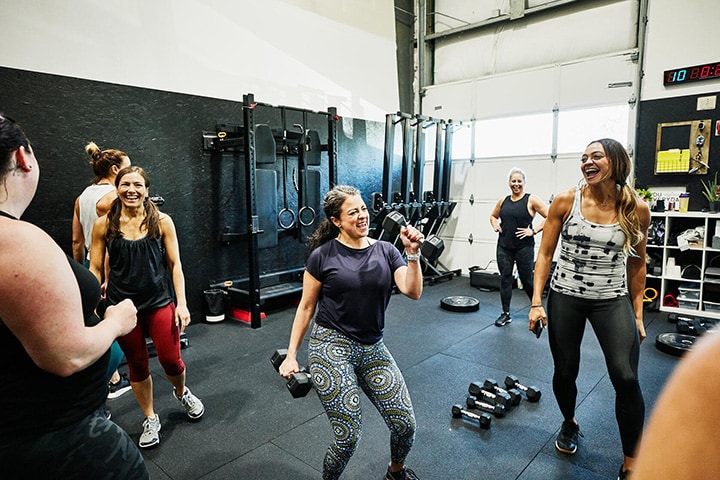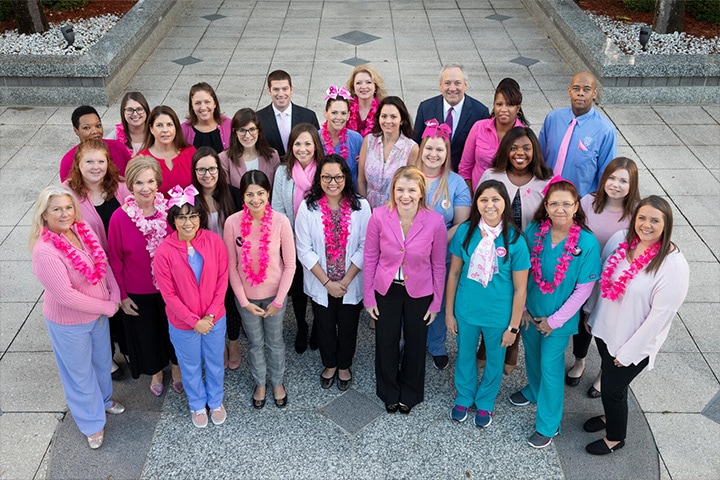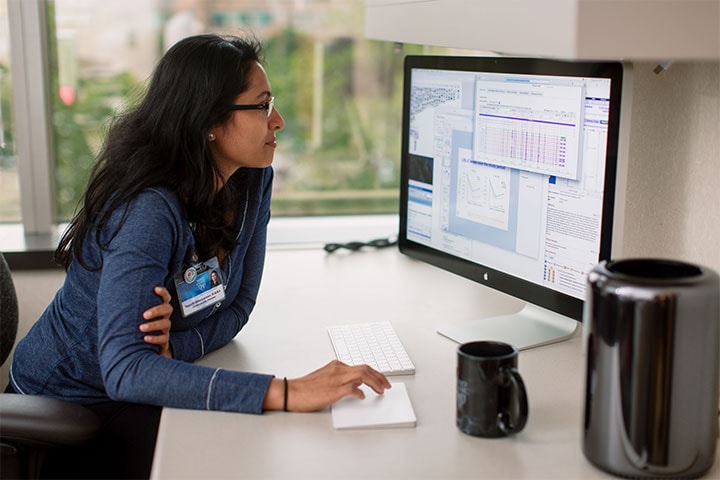Rotation Schedule and Didactic Training
Rotation schedule
The Advanced Heart Failure and Transplant Cardiology Fellowship includes 12 months of clinical rotations.
| Rotation | Length |
|---|---|
| Heart failure transplant service | 8 months |
| Elective | 1 month |
| Outpatient/Ambulatory | 1 month |
| Transplant infectious diseases | 1 month |
| HLA Laboratory | 1 month |
The fellow must be available for any new heart transplant or ventricular assist device (VAD) implant for the perioperative period and subsequent 72 hours, regardless of service obligation.
There are also individual opportunities that can be arranged to participate in the care of patients at the Pulmonary Hypertension clinic, Myocarditis clinic, Congenital Heart Disease, and Amyloidosis Clinic.
A typical week's schedule on the primary heart failure transplant service includes:
Monday
- 8-11 a.m. — hospital rounds
- 11 a.m.-noon — outpatient congestive heart failure and transplant
- 1-5 p.m. — outpatient congestive heart failure and transplant
Tuesday
- 7-8 a.m. — advanced heart failure/joint cardiology conference/Journal Club
- 8-10 a.m. — biopsies and right-heart catheterizations
- 10 a.m.-noon — hospital rounds
- 1-5 p.m. — outpatient congestive heart failure and transplant; pulmonary hypertension clinic (monthly)
Wednesday
- 8-11 a.m. — hospital rounds
- 11 a.m.-noon — outpatient congestive heart failure and transplant
- Noon-1 p.m. — staff meeting/morbidity and mortality meeting (once monthly)
- 1-3:30 p.m. — outpatient congestive heart failure and transplant
- 3:30-5 p.m.— multidisciplinary selection conference (weekly), meeting with OPO (monthly)
Thursday
- 7-8 a.m. — cardiology conference
- 8-10 a.m. — annual left- and right-heart catheterizations
- 10 a.m.-noon — hospital rounds
- 1-3:30 p.m. — outpatient congestive heart failure and transplant
- 3:30-4 p.m. — pathology/biopsy review conference
- 4-5:30 p.m. — transplant selection committee
Friday
- 8-11 a.m. — hospital rounds
- 11 a.m.-noon — outpatient congestive heart failure and transplant
- 1-5 p.m. — outpatient congestive heart failure and transplant
Didactic training
Clinical conferences, seminars, small discussion groups, journal clubs and one-on-one instruction are integral parts of this fellowship. There is a full core curriculum that designates expectations for the fellow in terms of didactic learning.
Simulation Center
The J. Wayne and Delores Barr Weaver Simulation Center at Mayo Clinic's campus in Jacksonville, Florida, provides team and individual skills training for Mayo physicians, residents, students, nurses, and allied health professionals and for learners from other organizations. The Society for Simulation in Healthcare-accredited center comprises approximately 9,500 square feet of multidisciplinary simulation training space, complemented by an additional 2,500-square-foot expansion of the center's Procedural Skills Lab. Many of the Advanced Heart Failure and Transplant fellow hands-on training regarding temporary mechanical circulatory support, as well as recertification in BLS/ACLS is held in this location. View a virtual tour.
Wellness initiatives
As a trainee, your physical and mental health are priorities to Mayo Clinic and the department. Trainees have access to several resources to promote well-being, as well as time off clinical duties to attend appointments.
- Fitness centers
- Groups on campus
- Well-being
Fitness centers
 Mayo Clinic residents or fellows can experience 24/7 free access to the Bill Hewitt Employee Wellness Center — opened in the summer of 2024 and spans 6,700 square feet with modern cardio machines, weight machines, free weights, a studio for live classes, and includes showers and locker rooms for convenience.
Mayo Clinic residents or fellows can experience 24/7 free access to the Bill Hewitt Employee Wellness Center — opened in the summer of 2024 and spans 6,700 square feet with modern cardio machines, weight machines, free weights, a studio for live classes, and includes showers and locker rooms for convenience.
Additionally, residents or fellows at our three campuses get discounted membership fees to area gyms. In Jacksonville, Florida, residents and fellows can obtain an exclusive discount with the YMCA (several locations).
Groups on campus

Opportunities to join a variety of groups on campus provide regular social activities and can help enhance your training while connecting with a broad group of peers.
Trainees will have the opportunity to join a Mayo Employee Resource Group (MERG) at any time during their training program. Mayo Employee Resource Groups (MERGs) are employee-led affinity groups to promote belonging, increase cultural awareness, and foster an environment of respect and inclusivity. Any Mayo Clinic employee can join a group of interest and choose their level of involvement
Well-being
 The Office of Academic Support and Well-Being provides resources to promote academic, emotional, social, cognitive, financial, and physical well-being. Career and academic services include academic advising, peer tutoring, and accommodations for learners with disabilities or health conditions. Mental health services, counseling, interview practice, and a variety of enrichment sessions on topics like budgeting, resiliency, and stress and burn-out are also available through the Academic Support and Well-Being office.
The Office of Academic Support and Well-Being provides resources to promote academic, emotional, social, cognitive, financial, and physical well-being. Career and academic services include academic advising, peer tutoring, and accommodations for learners with disabilities or health conditions. Mental health services, counseling, interview practice, and a variety of enrichment sessions on topics like budgeting, resiliency, and stress and burn-out are also available through the Academic Support and Well-Being office.